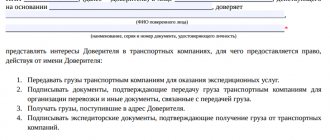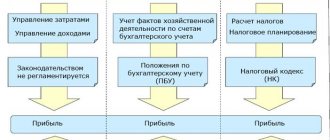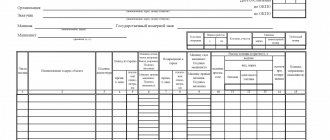Payment for work according to the certificate of completion
The legislation does not approve a unified form of the work completion certificate.
However, there are two types of official forms that display the fact of work completion (form KS-2), as well as the total amount of money spent on work (form KS-3). Based on this, all organizations have the opportunity to independently develop a form of document on completed work (services) that is convenient to fill out and use. In this case, it is advisable to indicate all the necessary information: Acceptance certificate for completed work - a document concluded between two counterparties (the customer on the one hand and the direct contractor on the other), according to which all types of work performed, their total cost, as well as initial and final deadlines.
https://youtu.be/-rtTnK-iy68
5.1. Upon acceptance of the result of work performed under the Contract, a check is carried out for the compliance of the work performed with the terms of the Contract, including in terms of compliance of their quality and scope with the terms of the Contract.
5.2. To verify the results of work performed under the Contract provided by the Contractor, in terms of their compliance with the terms of the Contract, the Customer conducts an examination.
5.3. The examination of the results provided for in the Contract may be carried out by the Customer on its own, or experts and expert organizations may be involved in its implementation on the basis of contracts concluded in accordance with the Law on the Contract System.
5.4. By decision of the Customer, an acceptance committee was created to accept the work performed and the results of a separate stage of execution of the Contract.
5.5. Acceptance of the results of the work performed is carried out in the manner and within the time limits established by the Contract, and is documented in acceptance documents, which are signed by all members of the acceptance committee, or a reasoned refusal to sign such documents is sent to the Contractor in writing.
5.5.1. Acceptance of the Work by the Customer is carried out in stages.
5.5.2. Documents on acceptance of work by the Customer are considered to be:
5.5.2.1. An act of acceptance of completed work, drawn up in accordance with the KS-2 form, approved by Resolution of the State Statistics Committee of the Russian Federation dated November 11, 1999 No. 100 (also referred to in the text of the Contract as the “Act of Acceptance of Completed Work (KS-2)”)
5.5.2.2. The acceptance certificate for the work performed under the municipal contract, drawn up in the form agreed upon by the Parties in Appendix No. 2 to the Contract (also referred to in the text of the Contract as the “Acceptance Certificate for the completed work”).
5.5.2.3. Each of the acceptance documents (clauses 5.5.2.1., 5.5.2.2. of the Contract) are drawn up for each individual stage of the Contract in 2 (Two) copies, 1 (One) for each of the Parties.
5.5.3. Documents on acceptance of work in full by the Customer are considered to be the Certificates of Acceptance of Completed Work (KS-2) signed by the Parties and Certificates of Acceptance of Completed Work for all stages of the Contract for the entire scope of work (for all types of work performed within the framework of the work) provided for by the Contract.
5.5.4. The Contractor, no later than 1 (One) working day from the date of completion of the work (stage of Contract execution), notifies the Customer in writing about the readiness of the work (stage of Contract execution) for delivery, along with which he also transfers to the Customer at the appropriate stage of Contract execution the Certificate of Acceptance of Completed Work (CA - 2), Certificate of cost of work performed and expenses (KS-3).
5.5.5. Acceptance of work (stage of execution of the Contract) begins no later than 1 (One) working day from the moment of receipt from the Contractor of the notification and documents provided for in clause 5.5.4. Contract. The acceptance period should not exceed 10 (ten) days, including, but not limited to, the examination, registration of the examination results and (or) registration of the acceptance results, transfer (sending) them to the Contractor.
5.5.6. At the beginning or before the start of acceptance of work (stage of execution of the Contract), the Contractor transfers to the Customer a complete set of documents confirming the quality, safety of the work subject to acceptance at the relevant stage of execution of the Contract and their compliance with the terms of the Contract, required in accordance with the terms of the Contract, including the Technical Specifications.
5.5.7. In case of identification of inconsistencies in the work (at the stage of execution of the Contract), which are removable and do not interfere with acceptance, the Customer, in a reasoned refusal to sign acceptance documents, or in an act drawn up in a free form, which is an integral annex to the Customer’s reasoned refusal to sign acceptance documents , indicates a list of identified inconsistencies, deadlines for their elimination, and a list of necessary improvements.
5.5.8. In the case specified in clause 5.5.7. of the Contract, the Contractor is obliged, within the period established by the Customer, at his own expense, to eliminate the identified inconsistencies of the work (at the stage of execution of the Contract) and submit them for re-acceptance to the Customer.
5.5.9. Repeated acceptance is carried out in the manner and within the time limits provided for in the Contract for acceptance of work (stages of Contract execution). Upon re-acceptance, the Contractor, together with a set of necessary documents (clause 5.5.4 of the Contract), also transfers to the Customer a Certificate of Elimination of Inconsistencies, drawn up by the Contractor in any form in 2 (two) copies, in accordance with the list of inconsistencies of the work identified by the Customer (stage of execution of the Contract).
5.6. The Customer has the right to refuse to accept the result of work (stage of Contract execution) that does not comply with the requirements of the Contract, including in the event of detection of deficiencies that cannot be eliminated by the Contractor within a timeframe acceptable to the Customer.
Is the act of acceptance of work performed a confirmation of payment for work performed?
In accordance with Part 1 of Art. 711 of the Civil Code of the Russian Federation, if the contract does not provide for advance payment for the work performed or its individual stages, the customer is obliged to pay the contractor the agreed price after the final delivery of the work results, provided that the work is completed properly and on time, or with the customer’s consent ahead of schedule.
Our construction company completed the work, the customer accepted it, wants to sign an act of acceptance of the work performed, but pay the rest of the payment later. If he is dishonest, will we be able to prove in court later that we completed the work, but did not receive money for it? Or is it necessary to state in the act that the customer did not pay for the work in full? Or does the act not need to be signed at all without full payment?
Commentary on Article 753 of the Civil Code of the Russian Federation
1. Comment. Art. establishes a number of fundamental rules relating to the delivery and acceptance of the result of construction work. Their main goal is to distribute between the parties the responsibilities associated with organizing and carrying out the acceptance of work, and the risks associated with its consequences. Most of these rules are imperative in nature, i.e. cannot be changed by agreement of the parties. For some of them this is hardly justified.
2. First of all, the customer is obliged to immediately begin accepting the work upon receiving a message from the contractor that the work is ready for delivery. The word “immediately” hardly in this case has a different meaning than the meaning of the phrases “in the shortest possible time”, “immediately”, “as soon as possible”, etc. After all, the customer must have the necessary time to prepare for acceptance of work. To avoid disputes on this matter, it is advisable to indicate in the contract a specific period during which the customer must begin accepting the work. The customer's obvious delay in accepting the object, firstly, transfers to him the risk of accidental destruction of the result of the work (clause 2 of Article 705 of the Civil Code) and, secondly, gives the contractor the right to demand compensation for losses caused by the delay in acceptance.
3. Further, clause 2 imposes on the customer the responsibility for organizing and conducting acceptance. In particular, as a general rule, it is the customer who must ensure the participation of representatives of relevant bodies and interested organizations in the acceptance committee, allocate personnel, provide the facility with energy, raw materials, fuel, etc. The customer does all this at his own expense, unless otherwise provided by the contract.
Participation in the acceptance of work by representatives of state bodies and local governments is provided for in a number of cases, in particular when commissioning multi-apartment residential buildings, objects financed from budgetary funds, etc. Specific requirements for the acceptance procedure are determined by SNiP 3.01.04-87 “Acceptance into operation of completed construction facilities. Basic provisions".
4. Acceptance of construction work can be carried out both as a whole and in separate parts (stages, queues). If the object is handed over to the customer in parts, the parties must stipulate which of them will use the transferred part of the object, ensure its security, bear operating costs, etc.
Point 3 comment. Art. in an imperative form establishes the rule that the risk of accidental destruction of this result passes to the customer who has accepted the result of a separate stage of work. It is unlikely that such a categorical decision is justified, since there are no visible reasons for it. It would be more reasonable to give this norm the meaning of only a general rule.
5. The delivery and acceptance of the object is formalized by a special act, which is signed by both parties, as well as by representatives of authorized state bodies and local governments. The refusal of a party (usually the customer) to sign the acceptance certificate does not exclude the formalization of the delivery of the object. A special note is made about this in the act, and the act is signed by the other party.
Such a unilateral act of delivery and acceptance of the result of work has legal force until and to the extent that, at the request of the other party, it is not declared invalid by the court. The court's decision depends on whether the court recognizes the reasons for refusing to sign the act as justified or not.
6. In accordance with paragraph 6 of Art. 753, the customer’s refusal to accept the object is considered justified only when the deficiencies identified during acceptance preclude the use of the object for its intended purpose and cannot be eliminated by the contractor and the customer. Thus, the presence of other shortcomings in the constructed facility that are not of a significant nature does not prevent its acceptance. All defects and deficiencies discovered during acceptance are recorded in a report, the contractor is given a reasonable period of time to eliminate them, sanctions are collected if they are provided for in the contract, but the result of the work itself must be accepted by the customer.
7. Sometimes the acceptance of the results of work must be preceded by preliminary tests of the operational qualities of the constructed facility (checking the operation of mechanisms, components, assemblies, etc.). In these cases, acceptance is carried out only with a positive test result, which is certified by a special act. Depending on the terms of the contract, tests can be carried out either by the contractor himself or by both parties. Since tests precede acceptance, they are organized and carried out at the expense of the contractor, unless otherwise provided by the contract.
Payment upon completion of work
Since you have set in the contract a condition for payment upon completion of the work, then, accordingly, from the moment the work is completed, and this moment comes with the signing of the acceptance certificate for the work performed, you become obligated to pay for this work. In accordance with Art. 314 of the Civil Code of the Russian Federation Your obligation must be fulfilled after signing the work acceptance certificate. In this case, according to the practice of working in the construction business, if the work is paid for at least 3-5 days, then penalties for late payment are usually not charged. Nobody gets angry over such trifles.
1. If an obligation stipulates or makes it possible to determine the day of its execution or the period of time during which it must be performed, the obligation is subject to execution on this day or, accordingly, at any time within such period. 2. In cases where an obligation does not provide for a deadline for its fulfillment and does not contain conditions allowing to determine this period, it must be fulfilled within a reasonable time after the obligation arises. An obligation that is not fulfilled within a reasonable time, as well as an obligation whose performance period is determined by the moment of demand, the debtor is obliged to fulfill within seven days from the date the creditor submits a demand for its fulfillment, unless the obligation to perform within a different period follows from the law, other legal acts, conditions obligations, customs of business or the substance of the obligation.
Analytics Publications
Acceptance of the result of the work performed by the contractor is one of the most important stages in the execution of the contract, and the possibility of subsequent protection of the customer’s property interests associated with the non-compliance of the result of the work performed by the contractor with the terms of the contract or other requirements imposed on them largely depends on how the work is accepted.
Acceptance of the work result is the responsibility of the customer
Relations between the parties to a contract for the performance of work for state or municipal needs, including those related to the acceptance of the result of work performed by the contractor, are governed by the provisions of §5 of Chapter 37 of the Civil Code of the Russian Federation (hereinafter referred to as the Civil Code of the Russian Federation). Along with these norms to the relations of the parties, taking into account the explanations contained in the Resolution of the Presidium of the Supreme Arbitration Court of the Russian Federation dated October 25, 2011 No. 9382/11, depending on the type of contract work, the norms of the Civil Code of the Russian Federation on construction contracts or contracts for design and survey work are subject to application (§ 3 or §4 of Chapter 37 of the Civil Code of the Russian Federation, respectively), as well as general provisions on contracts (§1 of Chapter 37 of the Civil Code of the Russian Federation) and the norms of the Federal Law of 04/05/2013 No. 44-FZ “On the contract system in the field of procurement of goods, works, services for meeting state and municipal needs" (hereinafter referred to as Law No. 44-FZ).
Participants in legal relations often equate delivery and acceptance of the results of work performed under a contract, while legislation and law enforcement practice make fairly clear distinctions between these stages of contract execution.
Delivery of the results of work performed under the contract is the responsibility of the contractor (clause 2 of Article 763, clause 1 of Article 740, Article 758, clause 1 of Article 702 of the Civil Code of the Russian Federation). It is with the fact that the contractor delivers the result of the work performed to the customer (and not with the fact of its acceptance by the customer) that the legislation connects the customer’s obligation to pay for the work performed (clause 8 of the Information Letter of the Presidium of the Supreme Arbitration Court of the Russian Federation dated January 24, 2000 No. 51).
Thus, the main responsibility of the contractor in this case is to, after completing the work, notify the customer of the completion of the work and present the result for acceptance by the customer.
The customer, having received the contractor’s message about the readiness to deliver the result of the work performed, by virtue of paragraph 1 of Article 753 of the Civil Code of the Russian Federation, is obliged to immediately begin accepting it. In accordance with paragraph 2 of Article 753 of the Civil Code of the Russian Federation, unless otherwise provided by the contract, the customer organizes and accepts the result of the work at his own expense.
According to the legal position formulated in the Resolution of the Presidium of the Supreme Arbitration Court of the Russian Federation dated December 3, 2013 No. 10147/13, it is the customer who bears the risks of failure to fulfill the obligation to organize and accept the result of the work performed, and therefore the customer’s evasion from accepting the work should not exempt him from paying for it .
Organization of acceptance of work results
In accordance with paragraph 13 of Article 34 of Law No. 44-FZ, the procedure and timing for the customer to accept the results of work performed by the contractor, including the procedure and timing for processing the results of such acceptance, are determined by the contract.
According to paragraph 3 of Article 94 of Law No. 44-FZ, in order to verify the result of the work performed by the contractor in terms of its compliance with the terms of the contract, the customer is obliged to conduct an examination. Such an examination can be carried out by the customer either on its own or with the involvement of third-party experts and expert organizations (the contract for conducting such an examination is also concluded in the manner prescribed by Law No. 44-FZ). In cases where the purchase is carried out from a single supplier, an examination of the result of the work performed by the contractor by an external expert or expert organization, as a general rule, is mandatory. Exceptions to this rule are provided for in paragraph 4 of Article 94 of Law No. 44-FZ.
In accordance with paragraph 6 of Article 94 of Law No. 44-FZ, by decision of the customer, an acceptance committee may be created, which must consist of at least five people, to accept the result of the work performed by the contractor.
If the acceptance of the work result must be preceded by preliminary tests, acceptance by virtue of paragraph 5 of Article 753 of the Civil Code of the Russian Federation can only be carried out if the results of such tests are positive.
Registration of acceptance of the work result
In accordance with paragraph 4 of Article 753 of the Civil Code of the Russian Federation, as well as paragraph 7 of Article 94 of Law No. 44-FZ, acceptance of the result of work performed under the contract is formalized by an act or other acceptance document signed by both parties to the contract. If an acceptance commission was created for the acceptance of work by the customer on the basis of paragraph 6 of Article 94 of Law No. 44-FZ, the acceptance certificate on the part of the customer is signed by all members of the acceptance committee, after which it is approved by the customer.
If the customer hired an expert or an expert organization to examine the result of the work performed, the proposals reflected in the conclusion based on the results of such examination should be taken into account by the acceptance committee when making a decision on acceptance or refusal to accept the result of the work performed.
Within the meaning of paragraph 4 of Article 753 of the Civil Code of the Russian Federation and paragraph 7 of Article 94 of Law No. 44-FZ, an acceptance certificate for the result of work performed is prepared by the contractor. The sending of such an act by the contractor to the customer indicates that he has fulfilled his obligation to notify the customer about the completion of the work and present the result for acceptance, which means that the customer has an obligation to accept the work.
As stated above, the customer’s payment obligation to the contractor is associated with the delivery of the result of work performed under the contract, and not with its acceptance. In this regard, if the customer fails to fulfill his acceptance obligations, the contractor has the right to make a demand for payment for the result of the work performed on the basis of a unilateral act. In accordance with paragraph 4 of Article 753 of the Civil Code of the Russian Federation, a unilateral act of delivery or acceptance of the result of work can be declared invalid by the court only if the reasons for refusing to sign the act are recognized by it as justified.
Grounds for refusal to accept the work result
Paragraph 7 of Article 94 of Law No. 44-FZ stipulates that, in the manner and within the time frame established by the contract for acceptance of the result of work performed, the customer must either sign (approve) the acceptance document submitted by the contractor, or send the contractor a reasoned refusal in writing signing such a document.
According to paragraph 6 of Article 753 of the Civil Code of the Russian Federation, the customer has the right to refuse to accept the result of work if deficiencies are discovered that exclude the possibility of its use for the purpose specified in the construction contract and cannot be eliminated by the contractor or the customer.
Thus, the only unconditional basis for the customer’s refusal to accept (and, accordingly, payment for) the work performed is the presence of fatal deficiencies that preclude the possibility of using the result of the work for its intended purpose. The presence of other shortcomings (which do not prevent the possibility of using the result of work for the purpose specified in the contract or shortcomings that can be eliminated by the contractor or the customer) provides the customer with other opportunities to protect his property interests, but in the literal sense of the law is not a basis for refusing to accept the result of the work performed works This conclusion is confirmed, among other things, by the legal position formulated in the Resolution of the Presidium of the Supreme Arbitration Court of the Russian Federation dated March 27, 2012 No. 12888/11, from which it follows that the mere fact of the presence of some shortcomings in the work performed cannot be an unconditional basis for the customer’s refusal to accept and payment for work. In the same resolution, the Presidium of the Supreme Arbitration Court of the Russian Federation placed on the customer the burden of proving the circumstances that served as the basis for refusing to sign the acceptance certificate for the work performed.
Rights of the customer when identifying deficiencies in work
A limited list of grounds for refusing to accept the result of work performed under the contract does not mean that the customer is deprived of the opportunity to protect his interests in cases where the work under the contract was performed with defects. In accordance with paragraph 1 of Article 723 of the Civil Code of the Russian Federation, in cases where the work was performed by the contractor with defects, the customer has the right, unless otherwise established by law or contract, at his choice to demand from the contractor:
- elimination of deficiencies free of charge within a reasonable time;
- a proportionate reduction in the price set for the work;
- reimbursement of their expenses for eliminating defects when the customer’s right to eliminate them is provided for in the contract (Article 397 of the Civil Code of the Russian Federation).
If the defects in the work result have not been eliminated within a reasonable period of time established by the customer or are significant and irreparable, the customer, in accordance with paragraph 3 of Article 723 of the Civil Code of the Russian Federation, has the right to refuse to perform the contract and demand compensation for losses caused.
The methods of protecting the customer’s property interests, provided for in paragraph 1 of Article 723 of the Civil Code of the Russian Federation, are formulated as alternative, therefore, when identifying deficiencies in the result of the work performed presented by the contractor, the customer can use any of them, but only one - preferable in a particular case. So, for example, according to the legal position formulated in the Resolution of the Presidium of the Supreme Arbitration Court of the Russian Federation dated 06/05/2012 No. 17325/11, the contractual obligation of the contractor to promptly eliminate identified shortcomings and defects is not exclusive and cannot be interpreted as depriving the customer of the right to demand a proportionate reduction in the price under the contract .
Conditions for submitting claims regarding the quality of work
The customer can exercise the rights provided for in paragraph 1 of Article 723 of the Civil Code of the Russian Federation only if the responsibilities for accepting the result of the work performed were fulfilled by him properly.
Thus, according to paragraph 2 of Article 720 of the Civil Code of the Russian Federation, a customer who discovers deficiencies in the work upon its acceptance has the right to refer to them in cases where these deficiencies were specified in the act or in another document certifying acceptance or the possibility of subsequent submission of a demand for their elimination, and by virtue of paragraph 3 of the same article, unless otherwise provided by the contract, the customer who accepted the work without inspection is deprived of the right to refer to defects in the work that could have been established during the usual method of accepting it (obvious defects).
In this regard, it is extremely important when accepting work to reflect the identified deficiencies as fully and in detail as possible, either in the report (when the result of the work is accepted with deficiencies, the presence of which is not a basis for refusal of acceptance, but gives the customer the right to present the contractor with the requirements provided for in paragraph 1 of Article 723 of the Civil Code RF), or a reasoned refusal to sign the act. The optimal form of reflecting the deficiencies of the work identified by the customer during acceptance is a detailed defective statement, which can be drawn up as an appendix to the customer’s reasoned refusal to accept the work result or to the act of acceptance of the work result with deficiencies, including with the involvement of an expert organization in the manner provided for in paragraph 3 of Article 94 of Law No. 44-FZ.
Certificate of completion
If the contractor does not fulfill his duties, fails to meet the deadlines for the work, there is a defect or improper performance of the work, then the customer has every right not to sign the certificate of completion and not to accept the work until the deficiencies are completely eliminated or to refuse payment to the contractor altogether. In this case, the contractor is obliged to eliminate all shortcomings and draw up a new act of completion, taking into account the new circumstances.
Interesting read: How can a general director certify his work record?
The certificate of completion of work is the primary document, according to which all types of work performed, their total cost, as well as the initial and final dates are displayed. The act is filled out in two copies and signed by the customer and the contractor (between two counterparties), one act remains with each of the parties.
The procedure for delivery and acceptance of completed work
5.1. The Contractor, on a monthly basis, before the 25th day of the month following the reporting month, submits to the Customer, the Customer's representative, a set of reporting documentation, certificates of the cost of work performed and expenses (form KS-3), certificates of acceptance of work performed (form KS-2), signed by the Contractor, in 3 (three) copies.
Upon completion of the entire scope of work provided for by the Contract, in addition to the documents listed above, the Contractor also submits to the Customer, the Customer’s representative, a Certificate of acceptance of the results of the entire scope of work under the Contract, signed by the Contractor, in 3 (three) copies.
5.2. Acceptance of completed work is carried out with the participation of the Contractor, the Customer's representative.
5.3. In the event of receiving from a representative of the Customer, the Customer a request for additional documents, provision of explanations regarding the results of work related to the terms of execution of the Contract, the Contractor, within 3 (three) working days, is obliged to provide the representative of the Customer, the Customer with the requested additional documents, explanations regarding the work performed .
5.4. The Customer's representative inspects the work performed and checks the presence of all documents provided for in clause 5.1 of the Contract, the compliance of the result of the work performed with the Technical Specifications and other initial data.
5.5. If the work performed fully complies with the terms of the Contract, including the requirements for volume, quality, safety, price, the Customer’s representative no later than 5 (five) working days from the date of receipt from the Contractor of the documents specified in clause 5.1 of the Contract , signs the acceptance certificates for completed work (form KS-2) and the Certificate of delivery and acceptance of the results of the entire scope of work under the Contract (upon completion of the entire scope of work) and sends them to the Customer for signing.
5.6. If the work performed contains deviations from the terms of the Contract, the Customer’s representative sends to the Contractor, no later than 5 (five) working days from the date of receipt from the Contractor of the documents specified in clause 5.1 of the Contract, a list of comments (defect sheet) to the result of the work performed, in which indicates the deficiencies in the results of the work that were the reason for refusing to accept them, as well as the procedure and time frame for eliminating the identified deficiencies. In this case, the Customer’s representative does not sign the acceptance certificates for the work performed (form KS-2) and the Acceptance Certificate for the results of the entire scope of work under the Contract.
5.6.1. The results of the work with comments and/or claims are subject to revision by the Contractor within the time limits established by the Customer’s representative. finalization of the results of the work performed is carried out by the Contractor at his own expense without subsequent compensation for these expenses by the Customer.
5.6.2. If, based on the results of consideration of the report containing information on the elimination of identified deficiencies and the implementation of necessary improvements, the Customer’s representative establishes that the Contractor has eliminated the deficiencies/implemented improvements in the proper manner and on time, and also if the Customer’s representative has no requests regarding the submission clarifications regarding the work performed, the Customer's representative signs the Work Acceptance Certificate and sends it to the Customer for signing in the manner and within the time frame provided for in clause 5.5 of the Contract.
5.7. Within 10 (ten) working days after the Customer receives the documents specified in clause 5.5 or 5.6.2 of the Contract, the Customer, with the specifics established by Federal Law No. 44-FZ, conducts an examination of the results of the work performed under the Contract in terms of their compliance with the terms of the Contract , with the preparation of a conclusion based on the results of the examination.
To check whether the quality of the work performed by the Contractor meets the requirements established by this Contract, the Customer has the right to engage independent experts.
5.7.1. If, in accordance with the conclusion drawn up based on the results of the examination, the submitted works fully comply with the terms of the Contract, the Customer, no later than 10 (ten) working days after the Customer receives the documents specified in clause 5.5 or 5.6.2 of the Contract, carries out acceptance of work performed under this Contract and sends to the Contractor signed by the Customer certificates of acceptance of work performed (form KS-2) and a Certificate of acceptance of the results of the entire scope of work under the Contract (upon completion of the entire scope of work).
5.7.2. If the Customer refuses to accept the results of the work performed based on the conclusion drawn up based on the results of the examination, due to the need to eliminate deficiencies and (or) finalize the results of the work performed, the Customer sends the Contractor a reasoned refusal to accept the results of the work performed, indicating the time frame for eliminating the identified deficiencies and (or) finalizing the results of the work performed.
5.8. The acts of acceptance of completed work signed by the Customer and the Contractor (Form KS-2), the Certificate of delivery and acceptance of the results of the entire scope of work under the Contract (upon completion of the entire scope of work) and the invoice presented by the Contractor to the Customer for payment for the work performed are the basis for payment to the Contractor for the work performed. works
Payment for work completion certificates
If you do not want to file a lawsuit “in vain,” contact a lawyer for a face-to-face consultation, where you will be given step-by-step instructions. The matter is not easy, so if you want to get a positive result, use the help of a lawyer at all stages from collecting evidence to a court decision. If the case has a positive outcome, legal costs will be recovered from the defendant.
Hello, you should submit a written complaint. If the requirements are not satisfied, then it is necessary to go to court. If you need help in drawing up documents, you can contact any specialist on the site in private messages. Good luck and all the best.
Payment based on a certificate of completion of work: legality, registration, accounting
As we can see, the current legislative norms do not contain clear requirements regarding the document that will serve as the basis for payment under the contract. Thus, payment can be made, among other things, on the basis of a certificate of completion of work. In this case, this condition should be recorded in the agreement (section “Terms of payment”), and the agreement should also be supplemented with a deed form in the form of an appendix.
- Title of the document;
- number and date (No___ from____);
- contents of the document (name of goods/services, quantity, price, cost, VAT - if available);
- parties to the act (names of organizations - customer and executor);
- the agreement under which goods were shipped/services were provided;
- information about the signatories (full name, positions of the managers who signed the act)
Certificate of completion
In order to streamline the taxation of payments for work and services, the Tax Legislation provides definitions of these operations. The result of the work carried out is material assets that have a real expression. The participant who completed the work transfers it, and the customer accepts it. For such operations, a work completion or acceptance certificate is filled out. Services do not have a material expression; there is no transfer of physical items or objects. With the help of an act of provision of services, the parties only indicate that the services were provided within a certain period of time. It is these documents that most often become the subject of disagreement and controversy.
The legislation provides the basis for drawing up this document. A mandatory precondition is a contract. An act drawn up in the absence of such a document may be recognized by the tax authorities as erroneous and invalid. The contract mostly specifies what document will be used to record acceptance. Articles of legislation provide for cases where the agreement and transfer and acceptance of services or work can be formalized in one document drawn up in a free format.
Report on deficiencies in completed work
- Refusal to fulfill the terms of an existing contract. The customer has the right not to pay for the work in cases provided for by law, in particular if the existing deficiencies are significant and irreparable. By irreparable we mean regularly occurring defects that require a disproportionately large amount of funds to eliminate the defects.
- Reducing payment for services performed by an agreed amount (percentage of the total cost of performing work or providing services). Here everything depends on the ability of the parties to the process to come to an agreement. If this cannot be done, the decision on the amount of payment is made by the court.
- A justified request on the part of the customer to eliminate deficiencies.
Interesting read: How to fill out a car purchase and sale agreement
A statement of deficiencies in the work performed is an important document in resolving misunderstandings and claims from the side providing the services and the receiving organization, both pre-trial and in court. Typically, identified flaws are compensated for by a reduction in payment for the work.
Certificate of completion
- Agreement
. Of course, at the initial stage of accepting an order to provide services to a person, it is necessary to conclude an agreement with him. The contract specifies all the basic data: the parties entering into the contract, the types of services provided, the cost of these services, the payment schedule, etc.; - Certificate of completion
. Upon completion of the work, a certificate of completion of work is signed between the customer and the contractor, which states that the customer has accepted the work performed and has no complaints; - BSO receipt
. When providing services regardless of taxation, when receiving cash from the customer, you are required to issue him a BSO form, which will be confirmation of receipt of money.
- Providing services to individuals
. Here we mean private individuals, but not individual entrepreneurs (despite the fact that an individual entrepreneur is also an individual; the entrepreneur’s main orders most often relate to his business activities); - Providing services to legal entities and budget organizations
. This also includes individual entrepreneurs who order services not for themselves, but for their business.
Sample contract
Contract No. 01/01-2019 for repair and finishing work.
Moscow "__" ____________ 2020
___________________________________________________________________________________, hereinafter referred to as the “Customer”, on the one hand, and Inside LLC, represented by the General Director Full Name, acting on the basis of the Charter, hereinafter referred to as the “Contractor”, on the other hand, have concluded this agreement on the following:
1. The Subject of the Agreement.
1.1. The Contractor undertakes to carry out repair and finishing work within the period established by the contract, according to the attached estimate, at the address: _
1.2. The estimate for work and the estimate for rough materials are an integral part of the contract.
1.3. The Customer undertakes, in case of proper completion of the repair and finishing work, to pay the Contractor all costs associated with the repair.
1.4. The work is considered completed after the signing of a bilateral work acceptance certificate.
2. Rights and Obligations of the parties.
2.1. The contractor is obliged:
2.1.1. Complete the work specified in the estimate on time from “___” ______________ 2019 to “___” _______________ 2020. Due to technological necessity (surfaces do not dry well, the list of works has been changed), the deadlines can be adjusted by mutual agreement.
2.1.2. Carry out the Customer’s instructions received during the work, unless such instructions contradict this agreement.
2.1.3. Carry out repair and construction work in accordance with GOSTs, SNiPs, PUE and other current regulations of the Russian Federation and the Moscow Government regulating the conduct of these types of work.
2.1.4. In case of damage during the work to the Customer or third parties, compensate the damage to the injured party.
2.2. The customer is obliged:
2.2.1. Pay the Contractor for the work if the work is performed properly.
2.2.2. Before the start of work, vacate the room in which the work will be carried out.
2.2.3. Provide the premises where work will be carried out with water and power supplies.
2.2.4. Providing the Contractor with clean finishing materials and equipment in a timely manner.
2.2.5. At the Contractor's request, provide the necessary conditions for the work, namely:
2.2.5.1. Provide the ability to turn off heating and water supply risers.
2.2.5.2. Provide the possibility of using an elevator for loading and unloading operations.
2.2.5.3. Possibility of access to the site for the Contractor's employees.
2.2.5.4. Possibility of turning off power supply.
2.2.5.5. Coordination with regulatory and operating organizations of ongoing work and redevelopment.
2.3. The contractor has the right:
2.3.1. Refuse to perform additional work if it is not within the scope of his activities or cannot be performed for reasons beyond his control.
2.3.2. In case of gross violation of the contract by the Customer, terminate this contract. In this case, the Customer is obliged to pay the Contractor part of the established price, according to the estimate, for high-quality work performed and materials supplied.
2.4. The customer has the right:
2.4.1. In case of gross violation of the contract by the Contractor, terminate this contract. In this case, the Customer is obliged to pay the Contractor part of the established price, according to the estimate, for high-quality work performed and materials supplied.
2.4.2. By agreement with the Contractor, has the right to change the list of works. In this case, the Contractor's services are paid according to the actual work performed and materials used. The deadlines for completing the work must also be adjusted.
2.4.3. Supervise the quality of work performed, compliance with deadlines, and the quality of the Customer’s materials provided by the Contractor, without interfering with the Contractor’s business activities.
2.5. The party whose responsibilities include providing the work with materials is responsible for the discovered impossibility of using the materials provided by it without deteriorating the quality of the work performed, unless it proves that the impossibility of use arose due to circumstances for which the other party is responsible.
3. Contract price and payment procedure.
3.1. Payment for work performed under this Agreement is made in the amount provided for in the estimate for the work (Appendix No. 1 to the Agreement). The cost of work indicated in the estimate is approximate (clause 4 of article 709 of the Civil Code of the Russian Federation). The actual cost of the work performed is indicated in the Certificates for the work performed.
3.2. Payment for work is made by the Customer in stages every 10 (ten) working days. The Contractor provides the Customer with a Certificate for the work performed, the Customer pays for this Certificate within 2 (two) working days.
If the Customer does not pay for the work performed within 2 (two) working days, all work at the site is stopped until further proceedings.
3.3. Payment for materials. The Customer pays the Contractor an advance in the amount of 50% of the cost of rough materials. Further payment for materials is also made in advance to the Contractor by the Customer. At the same time, the Contractor provides the Customer with reports on supplied and consumed materials.
4. Handover and acceptance of work.
4.1. Final acceptance of the work by the Customer is carried out within 2 (two) working days after receiving the Contractor’s message about readiness for delivery of the facility. The final payment is made within 2 (two) working days after the final delivery of the work by the Contractor to the Customer, provided that the work is completed properly. At the same time, a Final Acceptance Certificate for completed work is drawn up.
4.2. The Customer has the right to refuse to accept the work if deficiencies are discovered that must be eliminated by the Contractor. In this case, the Customer is obliged to present the detected deficiencies in writing to the Contractor within 2 (two) working days.
4.3. The warranty period is set at 24 months from the date of signing the acceptance certificate. The Contractor is responsible for defects discovered within the warranty period, except for defects that occurred as a result of normal wear and tear of the object, shrinkage, improper repairs carried out by the Customer himself or third parties involved by him.
4. Responsibility of the parties.
4.1. For failure to fulfill or improper fulfillment of obligations under this agreement, the parties are liable in accordance with the current legislation of the Russian Federation.
4.2. For failure to perform work by the Contractor as specified in clause 2.1.1. deadlines that occurred through his fault, the Contractor pays the Customer a penalty in the amount of 0.5% for each day of delay from the amount of uncompleted work.
4.3. For delay in payment by the Customer for work performed and materials supplied by the Contractor as specified in paragraphs 3.1. and 3.3. deadlines, the Customer pays the Contractor a penalty in the amount of 0.5% for each day of delay of the amount of unpaid work and materials.
5. Force majeure.
5.1. The parties are released from liability for partial or complete failure to fulfill obligations under this agreement if this failure was a consequence of circumstances caused by force majeure that arose after the conclusion of the agreement as a result of extraordinary events that the relevant party to the agreement could neither foresee nor prevent by reasonable measures.
6. Special conditions.
6.1. This agreement is drawn up in two copies having equal legal force, one of which is kept by the Contractor and the other by the Customer.
6.2. All utility bills during repairs are paid by the Customer.
7. Signatures of the parties.
Customer: Contractor: ____________________ ____________________
Payment for work according to the certificate of completion
Article 720 of the Civil Code of the Russian Federation states that the customer is obliged to accept the work within the time frame regulated by the contract. If defects, deficiencies or violations of the terms of the contract are identified that significantly affect the quality of work, the customer is obliged to notify the contractor. All comments of the performer must also be indicated in the act. Thus, a certificate of completion is a document confirming the completion of work and containing information about the shortcomings that were identified.
The certificate of completion of work is a primary accounting document that records the fact that the contractor has provided any services to the customer and is an addition to the contract. The act contains information about the work performed and payment. The contractor draws up a document in free form in two copies, signs them, puts the organization’s seal and hands them over to the customer for signature (one copy with both signatures remains with the contractor, the other with the customer).
All cases: civil and criminal
When considering disputes about the receipt by the customer of acts, the courts previously (before Article 165.1 of the Civil Code of the Russian Federation came into force) took into account the previous practice of the parties in exchanging legally significant messages. In one case, the court recognized as proper the notification of readiness for delivery of work, which the contractor sent to the address indicated by the customer himself (it differed from the legal address). The court took into account that this address was indicated by the customer himself, and earlier, when sending correspondence to this address, he did not position himself as not notified (resolution of the Federal Antimonopoly Service of the North-Western District dated April 26, 2013 in case No. A56-77508/2009). And according to paragraph 1 of Article 753 of the Civil Code, the customer’s obligation to begin accepting the result of the work performed arises precisely after receiving a message that the result of the work is ready for delivery. While there is no current judicial practice, it is impossible to say with certainty whether the courts will apply the rules of paragraph 1 of Article 165.1 of the Civil Code to this case or will they proceed from the fact that paragraph 1 of Article 753 of the Civil Code refers to actual receipt (that is, “other » rule in relation to paragraph 1 of Article 165.1 of the Civil Code). Therefore, in any case, it is better to take some measures to obtain confirmation that the customer has actually received the completion certificate.
Interesting to read: Bailiffs of Kineshma photo of alimony workers
Often, unscrupulous customers, in order to avoid paying for construction work performed by the contractor or to delay the moment of payment as far as possible into the future, do not sign acceptance certificates for the work performed. To solve this problem, the contractor can use a special procedure - sign the act unilaterally (clause 4 of Article 753 of the Civil Code of the Russian Federation). This will allow the contractor to count on payment for the work he has performed even in the absence of the customer’s signature. But in order to receive money on the basis of unilateral acts, you need to comply with a number of requirements directly specified in the law and developed by judicial practice. Otherwise, the court will not accept the unilateral act as evidence of the completion of the work.
Post the certificate of completed work online
Free sending of reports via the Internet is provided by Kontur.Accounting - an online service for maintaining records, calculating salaries and sending reports via the Internet. If you do not yet have an accountant, then you can always turn to trusted partners of SKB Kontur for help. Submit your application!
Without acts, all company expenses cannot be taken into account when calculating income tax. The act of performance of work and services (or, as it is also called the “act of acceptance and transfer”) is provided for in the contract signed between the customer and the contractor as a closing document.
Is it possible to make payment based on a certificate of completion of work?
Organizations that are not recognized as VAT payers should not issue invoices even with the indication “Without VAT”. Invoices and receipts will be enough for you to pay for your purchase. Moreover, since the invoice for payment is not a primary document, but is only information for the buyer about the price of the goods and the details by which money can be transferred, you can transfer money to the counterparty on the basis of only the act, without having an invoice.
The organization provides us with services for the delivery of goods from the supplier. Previously, they issued us an invoice marked “Without VAT”, a certificate of completion of work and an invoice. Because canceled invoices for VAT non-payers, they stopped issuing us an invoice and presented only a certificate of completion of work. And they demand that we make payment based on this act. Are they right?
Payment for work must be made after signing the act
According to the terms of the contract, payment for work must be made after signing the certificate of completion of work on the basis of the invoice and invoice. The contractor did not provide an invoice for payment. Are the Customer’s actions legal if he does not pay for the accepted work without the provided invoice from the Contractor?
“The appellant believes that the court of first instance unjustifiably collected a penalty from the defendant. The terms of the agreement provide for the following payment procedure: by transferring funds to the contractor's bank account in the amount of 100% of the cost of work according to local estimate No. 1 within 5 calendar days after the customer and contractor sign this agreement. According to the defendant, the parties actually changed the terms of the contract by actual actions, since the plaintiff began performing the work without waiting for the funds to be transferred to him. In this case, the payment period should be determined based on the moment of demand, that is, issuing an invoice. The contractor did not issue an invoice for payment, therefore, the accrual of the penalty is unlawful.











